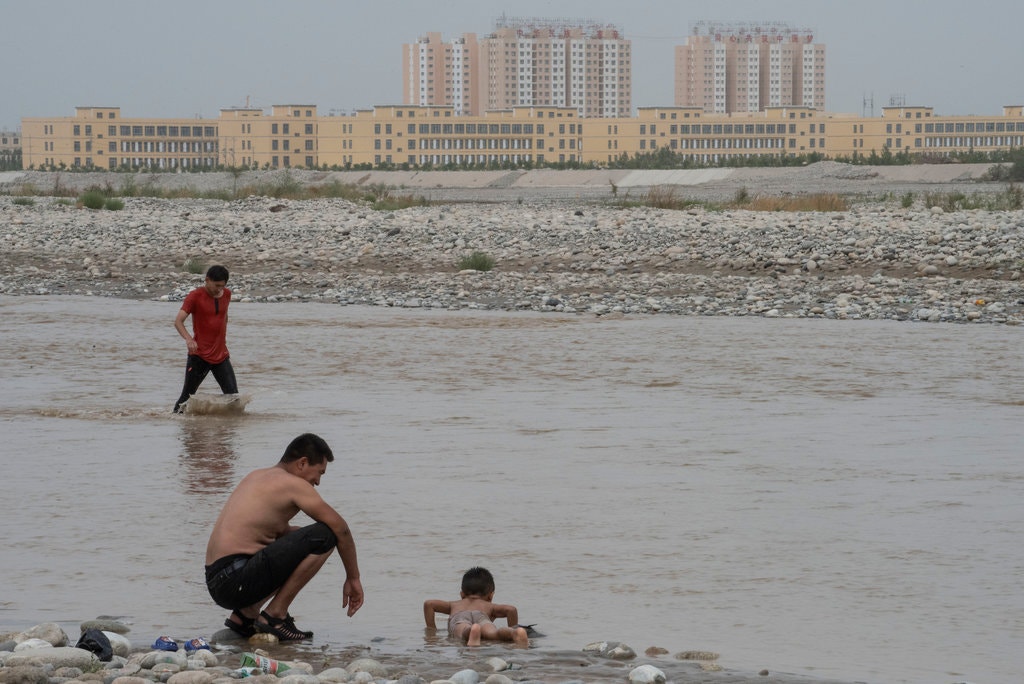Xi Jinping on Xinjiang in leaked documents: ‘Absolutely no mercy’

Photo: Gilles Sabrié, New York Times
Over the weekend, the New York Times published one of the most significant document leaks from the Chinese government in decades. The 400-plus pages of private speeches from high-level officials, internal memos, and records of investigations and disciplinary action all concern the government’s “People’s war on terrorism” in Xinjiang and the extralegal mass detention atrocity that it has led to.
https://signal.supchina.com/chinas-social-re-engineering-of-uyghurs-explained-by-darren-byler/
Here are some key takeaways from the documents, whose validity was not denied by the Chinese government:
- Four private speeches by Xí Jìnpíng 习近平, the General Secretary of the Communist Party of China, showed him in 2014 demanding that comrades “show absolutely no mercy” in dealing with those infected with “extremist religious thought.” Xi also “urged the party to emulate aspects of America’s ‘war on terror’ after the September 11 attacks.”
- Chén Quánguó 陈全国, the former Party leader in Tibet, was transferred to oversee Xinjiang in 2016, and used Xi’s speeches as justification for what he described as a “smashing, obliterating offensive” against religious extremism.
- “Round up everyone who should be rounded up,” Chen ordered in February 2017, leading to the arbitrary detention of over a million ethnic minorities who showed even normal signs of Muslim piety.
- One official resisted the order, and was punished. Wáng Yǒngzhì 王勇智, who managed Yarkand County in southern Xinjiang, quietly released more than 7,000 detainees. He was swiftly stripped of power, and reports accusing him of being irredeemably corrupt — along with a likely coerced signed confession — were distributed to officials across the region.
The NYT says that the source of the documents was “a member of the Chinese political establishment who requested anonymity and expressed hope that their disclosure would prevent party leaders, including Mr. Xi, from escaping culpability for the mass detentions.”
One of the documents, which the NYT translated and published in full, was essentially a script that officials were told to follow when interacting with children whose parents had been detained in camps. These were some of the messages to be communicated:
- “Treasure this chance for free education that the Party and the government has provided to thoroughly eradicate erroneous thinking, and also learn Chinese and job skills,” officials were told to tell students returning to Xinjiang from other parts of China.
- They have not committed a crime, but they cannot leave. You cannot visit them, either, as they have an “infectious virus” in their thinking and need something like a “detox for drug addicts.”
- If you complain, it will make things worse. “Family members, including you, must abide by the state’s laws and rules, and not believe or spread rumors. Only then can you add points for your family member.”
The Chinese Foreign Ministry did not deny the authenticity of the documents (as mentioned above), but accused the New York Times of “taking out of context and hyping” the papers. Xinjiang has “seen dramatic changes: Peace, prosperity and tourism are back,” the editor of a major state-controlled newspaper said on Twitter.
I don't know if the documents NYT reported is true or false. But I am certain Xinjiang has seen dramatic changes: Peace, prosperity and tourism are back. Xinjiang borders Pakistan and Afghanistan, China's de-radicalization efforts have made Xinjiang different from them. https://t.co/cs8xv2Zgfz
— Hu Xijin 胡锡进 (@HuXijin_GT) November 17, 2019
Further reading
- The spectre of insecurity — the CCP’s mass internment strategy in Xinjiang, a paper published in March 2019 by scholar James Leibold, which puts the Party’s thinking on Xinjiang in context. Like the NYT leak, Leibold shows how the mass internment campaign has been ordered from the very top, and is part of a significant change in the thinking of China’s ethnic minority policymakers.
- Western media report on Xinjiang lacks morality is one indignant reaction to the NYT story from nationalist rag Global Times. Here’s another from its Twitter feed:
History will judge the vocational education and training centers in #Xinjiang, and the criteria for that judgment will not be based on the preferences of Westerners, but the attitudes of the masses living in Xinjiang: Editor-in-Chief Hu Xijin #HuSays pic.twitter.com/LU36hkcigP
— Global Times (@globaltimesnews) November 17, 2019






